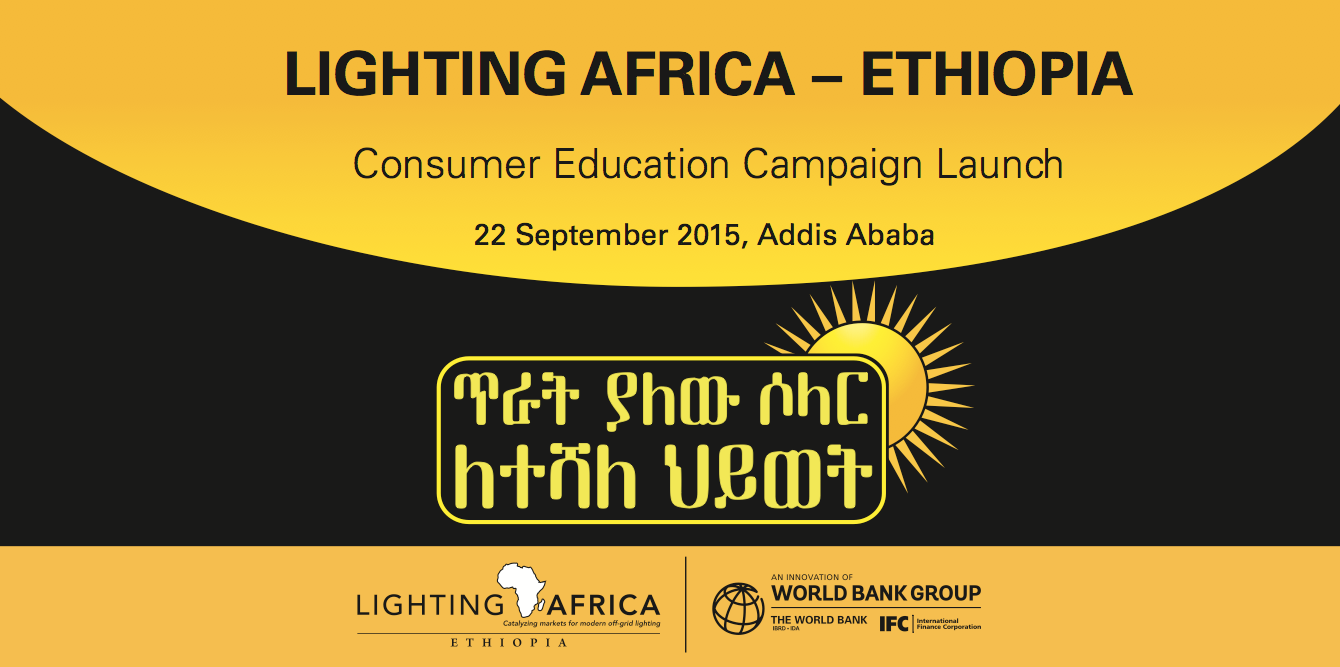Lighting Africa – Ethiopia launches Consumer Education Campaign targeting over 12 million Ethiopians
 In Addis Ababa
In Addis Ababa
Name: Alasdair Miller
Phone: +251 11 517 6073
E-mail: amiller5@ifc.org
Lighting Africa – Ethiopia launches Consumer Education Campaign targeting over 12 million Ethiopians
Addis Ababa, Ethiopia, September 22, 2015 – Lighting Africa – Ethiopia, a World Bank Group program aimed at accelerating the development of the market for off-grid solar lighting products in Ethiopia, today launched a Consumer Education Campaign in Ethiopia highlighting the benefits provided by modern, quality off-grid lighting, and assisting them in making informed purchasing decisions.
The program addresses the lighting needs of rural, urban, and suburban consumers without electricity access—predominantly low-income households and businesses. It seeks to offer an alternative to fuel-based kerosene lamps and candles, which are currently the most commonly used lighting sources among those without grid electricity.
“Access to modern energy provides productive capacity for stimulating economic development and reduces conditions for poverty while improving health, air quality, productivity comfort, education and hardships imposed on women and children” said H.E Ato Alemayehu Tegenu, Minister, Ministry of Water, Irrigation and Energy while officiating the launch.
Lighting Africa Ethiopia is a key component of the Scaling-Up Renewable Energy Project (SREP) developed in conjunction with the government of Ethiopia through the Ministry of Water, Irrigation and Energy and other partners. The program is working together with the government through a variety of channels including a $20 million Development Bank of Ethiopia credit line to promote sustainable access to clean energy which together with other services, is vital for poverty eradication.
The campaign is expected to run over a two year period, reaching over 12 million Ethiopians predominantly in rural areas. It will include a broad range of marketing and public awareness activities including mass media and door-to-door campaigns, tailored to address the specific needs of low income households across the country.

